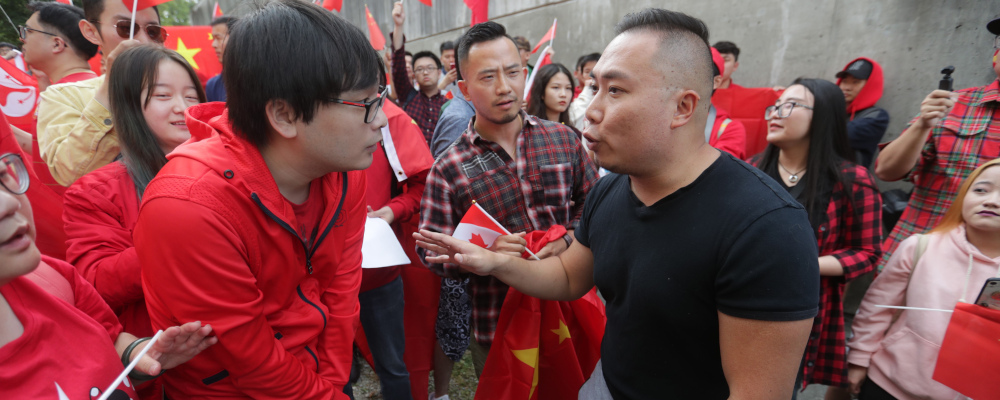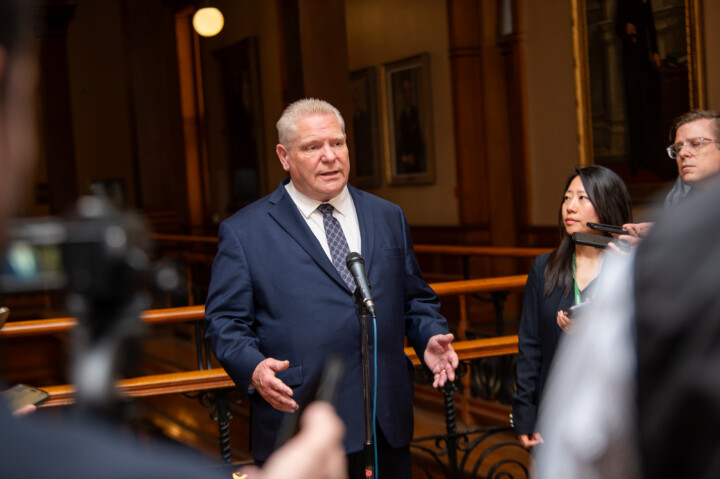A massive spike in antisemitic incidents across the country following Hamas’ gruesome October 7th attacks has shocked many Canadians. But these events are only the latest example of how diaspora politics are increasingly putting our national cohesion and international engagement at risk.
The disorder we have witnessed in Canadian cities in recent months, which just this weekend succeeded in shutting down an event between two G7 leaders at the Art Gallery of Ontario, comes on the heels of a major break in Canada-India relations following the killing of Sikh nationalist Hardeep Singh Nijjar, as well as the fiasco surrounding the invitation of former Waffen SS member Yaroslav Hunka to Parliament.
The implication seems clear: An increasingly multipolar international order—one featuring assertive new powers and competing global interests—risks fracturing our diverse society and rendering our foreign policy impotent. To avoid this outcome, we need to do two things.

First, our leaders need to repurpose our public discourse about multiculturalism toward highlighting the ties that bind Canadians together, rather than focusing on the ways in which we are diverse and different from one another.
Continual intimidation, harassment, and violence against Jewish businesses, neighbourhoods, and community institutions since October 7th has been unnerving and dangerous. I certainly never thought I would live to see the Avenue/Wilson intersection in Toronto—where I spent the first five years of my life—labelled a “Zionist-infested area,” nor to witness a crowd outside the Montreal Holocaust Museum earlier this week cheer as those inside the building were called “rats.”
The face of Canada has changed considerably since multiculturalism was first adopted more than a half-century ago. One day after introducing the policy in Parliament in October 1971, Prime Minister Pierre Trudeau’s maiden speech to outline his vision of a multicultural Canada was made to the Ukrainian Canadian Congress.
Ten years later, in 1981, Jews still outnumbered Muslims nearly four-to-one in the Toronto Census Metropolitan Area (CMA). Yet as of the 2021 census, Muslims accounted for more than 10 percent of the Toronto CMA, now outnumbering Jews by roughly the same four-to-one margin.
Multiculturalism is a unique Canadian success story. And it remains one of the most important assets we have to grow the foundations of our national power and prosperity in an increasingly post-Western international order. But the dramatic change in the demographic composition of Canada over the past four decades means that our population has become subject to a wider range of pressures and ideas. If we fail to pair our growing diversity with a common narrative, then we risk seeing Canadians pitted against one another—as indeed is already occurring—and the whole multicultural edifice being brought down in the process.
Leaders from all parties need to get behind a unifying message, rooted in the founding wisdom of our constitutional order: Canada stands for peace, order, and good government. That means that acts of intimidation and harassment will not be tolerated. But it also means we cannot allow conflicts in distant lands to divide us and shape who we are as Canadians.
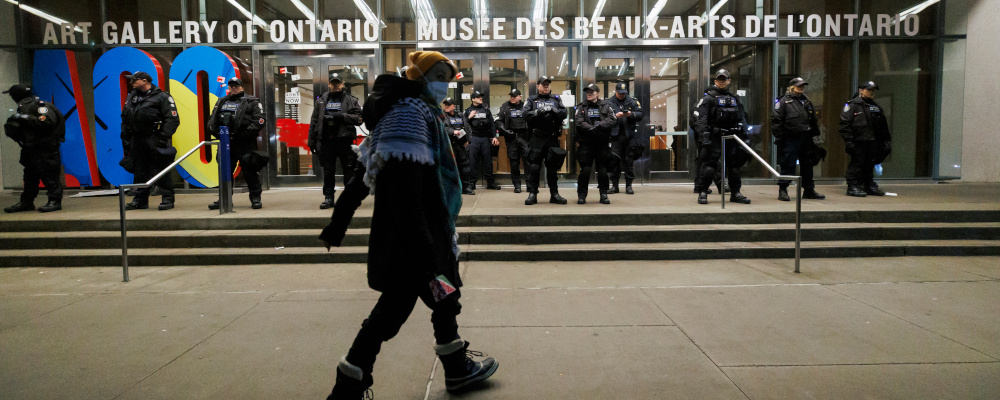
This domestic message will resonate even more strongly if accompanied by an adjustment in the way we conduct our foreign policy. Research I have conducted for the Institute for Peace & Diplomacy shows how our political class has difficulty articulating a common idea of Canada’s national interests, beyond platitudes such as outdated conceptions of our “role in the world” as a “middle power” or our desire to be “seen to be a good ally.”
Unable to focus resources and attention on clearly defined core interests, our leaders all too often gear their statements toward domestic audiences for political gain. The current Israel-Hamas war is a case in point: given that Canada’s ability to influence the conflict is negligible, foreign policy statements are used to satisfy demands from this or that constituency. Diversity management takes the place of diplomacy.
A new discourse focused on what does or does not constitute a core national interest would encourage ethnocultural communities to think about foreign policy not as Jewish, Muslim, Sikh, or Ukrainian Canadians, but rather simply as Canadians. Owing to Canada’s location on the map, challenges in the Arctic, Asia, and Europe must rank far ahead of the Middle East when it comes to allocating limited resources in the pursuit of our interests.
By the same token, we should oppose antisemitism not just as Jewish Canadians, but because it offends who we are as Canadians: a civilized country based on peace, order, and good government for all. With a multipolar world exerting growing pressure on our multicultural tapestry, our leaders should focus less on moral posturing toward a conflict over which they have little influence and more on what kind of society we want to build here at home.
Recommended for You
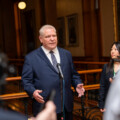
Ontario’s Progressive Conservatives need a wake-up call

From Jordan Peterson law to bail reform: 9 policy proposals from the Conservative convention that could spur Canada’s comeback
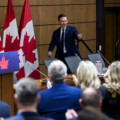
‘A delicate balance’: Why the Conservative convention is a crossroads for the party

Everyone’s managing decline. I’m exploring a run for Ontario Liberal leader to fight for growth

